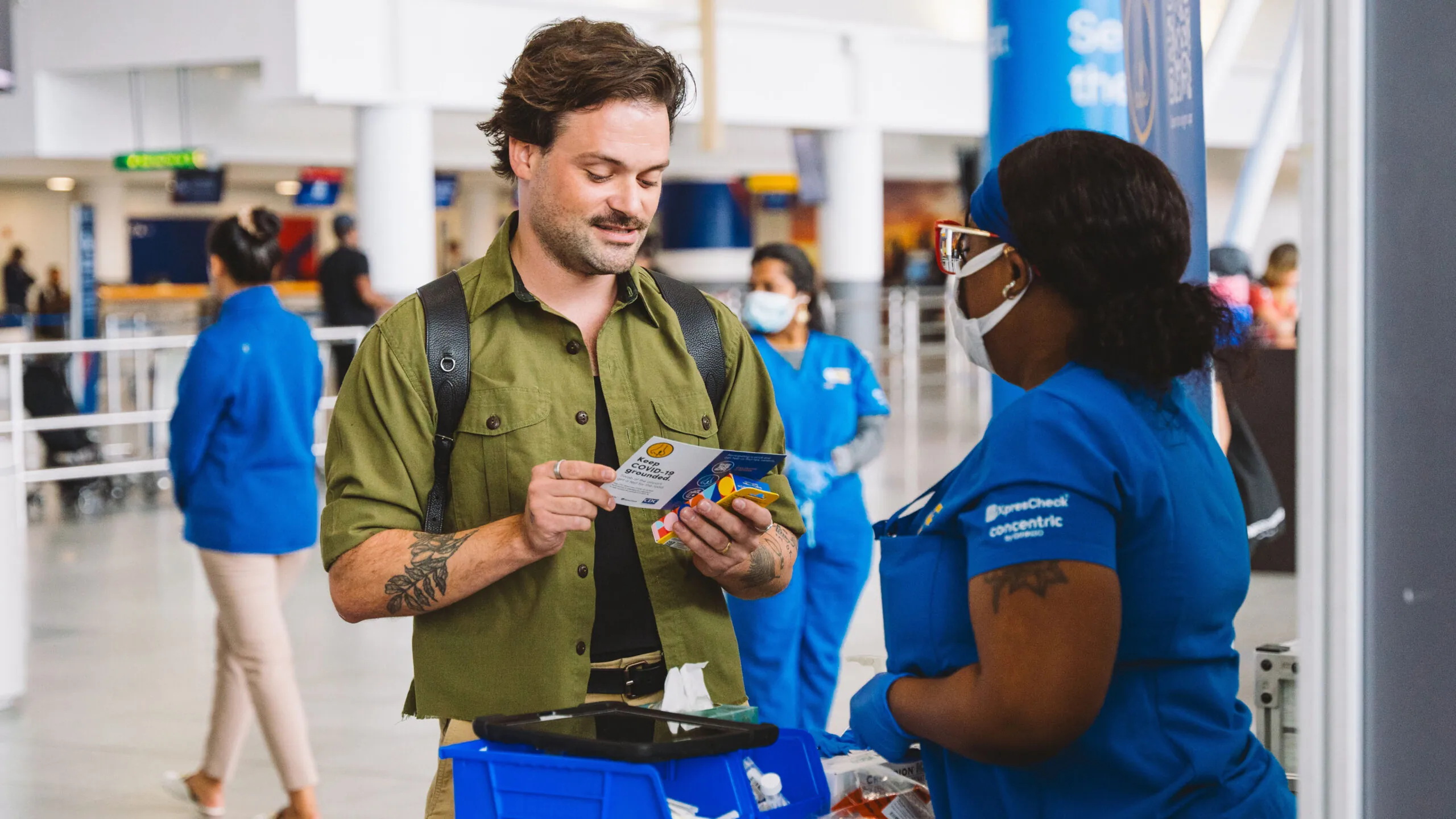Ginkgo.Your Innovation Partner.

The Traveler-based Genomic Surveillance (TGS) program, a leading example of biosecurity infrastructure, leverages voluntary nasal swabs as well as wastewater sampling from international travelers to detect more than 30 pathogens. The program will expand to new collection locations at US international airports in Miami (MIA) and Chicago (ORD), bringing the total number of US locations to nine.
Additional program funding and expanded program scope, which will double the CDC’s current investment in TGS, will be used to substantially increase the volume of nasal and wastewater samples collected, tested, and sequenced using a custom multipathogen panel. This expanded funding will also bring the number of airports in the program to a total of nine active sites: Los Angeles, San Francisco, New York (JFK), Washington Dulles, Newark, Boston, Seattle, Miami, and Chicago.
Since its inception in September 2021, the TGS program has demonstrated its ability to serve as an early detection mechanism for new pathogens and fill gaps in global biosurveillance.
The program has detected several novel strains of SARS-CoV-2 (the virus that causes COVID-19), using different sample types, including nasal swabs collected anonymously from volunteer international travelers arriving at participating airports hosting mobile testing centers in terminals, as well as wastewater samples from airplanes and airport triturators. In October 2023, the program expanded to cover a list of more than 30 viral and bacterial targets.
The first phase of multipathogen testing and sequencing in November and December 2023 proved successful, and the TGS program was able to detect positive samples containing several pathogens of interest, including influenza A and B, RSV, and Mycoplasma pneumoniae, a bacteria that causes pneumonia.
“We are thrilled to have the opportunity to take the TGS program to the next level. Multipathogen biomonitoring expands this critical biosecurity infrastructure for the United States,” said Matt McKnight, General Manager of Ginkgo Biosecurity. “The frequency of new outbreaks around the world reminds us every day that persistent and strategically focused biosurveillance is paramount to ensure readiness and rapid response. We are honored that CDC continues to trust this consortium to deliver a strategic piece of our biothreat preparedness.”